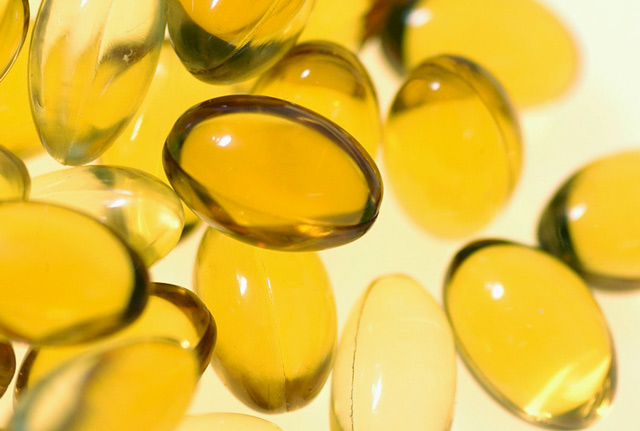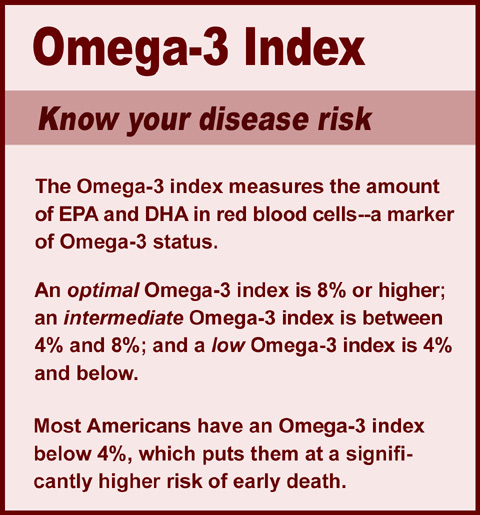Researchers from the University of Pennsylvania say a new study shows a nutrient known for heart health also helps the aggressive behavior that seems to permeate society today. That nutrient, or group of nutrients, are Omega-3 fatty acids.
The fact that society has become more impatient, unreasonable and aggressive is impossible to deny.
From road rage to physical attacks on fast-food workers to endless online tirades in response to imagined insults, we see daily examples of out-of-control people who appear incapable of controlling their emotions. The days where the social norm of “manners maketh man” are long gone.
The media have certainly noticed.
The New York Times asks, “Why is everyone so angry?” Time Magazine asks, “Why is everyone so rude right now?” Resilience.org asks, “Why are anger and social violence increasing in America?”
Theories abound for the cause of increased aggressiveness. Politicians blame poverty. Psychologists blame the Covid pandemic. Popular Science asserts people are growing more violent due to climate change.
One thing is for sure, though: society could definitely benefit from gaining knowledge on ways to combat the problem.
Ancient medical systems—including Traditional Chinese Medicine and Ayurveda Medicine from India—have long identified nutrients and foods as important components in affecting mood, behavior and self-control. Modern studies have corroborated some of these traditional food/nutrient benefits, and some western drugs are even derived from them.
According to the findings of the new Pennsylvania study, Omega-3 fatty acids also show promise of helping in this area.
Omega-3 supplements are commonly made using fish oil; however, potent and less-toxic Omega-3 oils can also be derived from algae (where fish get their omega-3s), flaxseed, and borage oils.
Study details
The study, a meta-analysis conducted by members of departments of Criminology and Psychology at the University of Pennsylvania, analyzed data from 29 randomized controlled trials and concluded that Omega-3 oils can “significantly reduce aggressive behavior.”
In the end the study included 3,918 participants total from a number of countries. All the trials included in the meta-analysis were conducted between 1996 and 2024.
To analyze the data, they used three different approaches. In the first, they calculated an overall effect size by treating each independent sample from the studies as a separate data point.
In the second approach, they averaged the results when one publication reported on multiple independent samples, so each study contributed just one effect size.
In the third approach, they averaged results at the lab level, so studies from the same research group were combined into one data point.
Positive findings
Across these three meta-analytic approaches, the results showed Omega-3 significantly reduced aggression compared to placebo, with modest average effect sizes ranging from 0.16 to 0.28 depending on the analysis method.
The results were published in the journal Aggression and Violent Behavior.
The researchers reported that Omega-3 supplementation led to “a modest but substantial 30% reduction in aggression levels.” Importantly, the study found statistically significant reductions in aggression levels, regardless of whether the researchers averaged the effect sizes by study, independent sample, or laboratory setting.
According to the researchers, the reductions they documented happened regardless of factors like age, gender, diagnosis, treatment duration, or dosage. Moreover, the beneficial effects were observed for both reactive aggression (impulsive responses to provocation) and proactive aggression (premeditated violent behavior).
Provides help, but not a cure-all
The researchers wrote that they don’t claim Omega-3s would not be an immediate magical cure-all; however, they feel it can be a safe, easy, inexpensive addition to include with existing treatments for overly-aggressive and violent people.
Commenting in a media press release, the scientists posited: “At the very least, we would argue that Omega-3 supplementation should be considered as an adjunct to other interventions, whether they be psychological or pharmacological in nature, and that caregivers are informed of the potential benefits of Omega-3 supplementation.”
One major limitation to the meta-analysis was that most of the included studies were short-term—meaning the long-term effects of Omega-3 supplementation remain unclear.
In addition, the overall effect size was modest. This indicates Omega-3s are unlikely to be a game-changing treatment for aggressive individuals.
Regardless, the scientists remained confident that Omega-3 supplementing would still provide a small boost to dampen the behavior of aggressive individuals. Moreover, the researchers noted that the boost would be even greater when the Omega-3 was combined with other interventions.
– – –
All three Omega-3 essential fatty acids can be found in Optimal E.F.A. by Optimal Health Systems:
• A-linolenic acid (ALA)
• Eicosapentaenoic acid (EPA)
• Docosahexaenoic acid (DHA)
Click the banner ad on this page to learn more.
– – –



